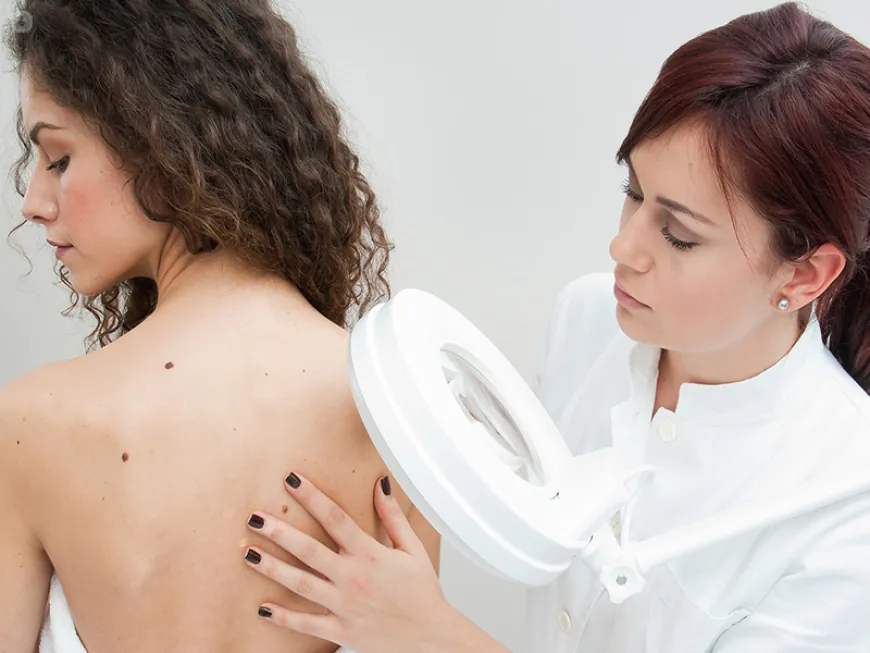Skin Tag Removal in Dubai: Enhance Your Skin Health

Skin tags are small, benign growths that can appear on various parts of the body, often causing concern for their appearance and the discomfort they may bring. While skin tags are harmless, many people seek to have them removed for aesthetic reasons or because they find them irritating. In Dubai, various methods for skin tag removal are available, tailored to individual needs and preferences. This article explores Skin Tag Removal in Dubai, providing insights into the causes of skin tags, the removal process, and post-removal care to enhance your skin health.
Understanding Skin Tags
What Are Skin Tags?
Skin tags, medically known as acrochordons, are small, soft pieces of skin that protrude from the surface. They often appear as tiny, hanging flaps of skin and can vary in color from the same shade as your skin to darker tones. Common areas where skin tags develop include the neck, armpits, groin, eyelids, and under the breasts.
Causes of Skin Tags
The exact cause of skin tags is not entirely understood, but several factors contribute to their formation:
- Friction: Skin tags often develop in areas where skin rubs against skin or clothing.
- Genetics: A family history of skin tags may increase the likelihood of developing them.
- Hormonal Changes: Hormonal fluctuations, particularly during pregnancy, can contribute to skin tag development.
- Age: Skin tags are more common in older adults, with many individuals developing them as they age.
Skin Tag Removal in Dubai
Why Consider Removal?
While skin tags are typically harmless, many individuals choose to remove them for cosmetic reasons. Some reasons for seeking removal include:
- Aesthetic Improvement: Removing skin tags can enhance overall skin appearance and boost confidence.
- Comfort: Skin tags in friction-prone areas can become irritated or painful.
- Preventing Further Growth: Removing existing skin tags may prevent the development of new ones.
Popular Methods for Skin Tag Removal
Dubai offers various professional methods for skin tag removal, ensuring that individuals can choose a suitable option based on their preferences and medical considerations.
1. Surgical Excision
Surgical excision involves cutting off the skin tag using a sterile surgical instrument. This method is quick and effective, typically performed under local anesthesia. The wound is then closed with sutures if necessary. Surgical excision is ideal for larger skin tags or those that are deeply rooted.
2. Cryotherapy
Cryotherapy involves freezing the skin tag with liquid nitrogen, causing it to fall off over time. This method is minimally invasive and does not require anesthesia. Cryotherapy is effective for small to medium-sized skin tags and is generally well-tolerated by patients.
3. Electrosurgery
Electrosurgery uses high-frequency electrical currents to burn off skin tags. This method is precise and helps minimize bleeding. Electrosurgery is often used for skin tags that are located in sensitive areas, as it can target the growth without affecting surrounding tissue.
4. Laser Removal
Laser removal is a non-invasive technique that uses focused light beams to vaporize skin tags. This method is precise and can effectively remove skin tags of various sizes. Laser removal is often preferred for its ability to minimize scarring and promote faster healing.
What to Expect During the Procedure
The removal procedure typically begins with a consultation where the dermatologist assesses the skin tag and discusses the best removal method for your needs. Once the method is chosen, the procedure usually takes only a few minutes. Local anesthesia is administered if necessary to ensure comfort during the process.
After the removal, you may experience mild discomfort, swelling, or redness at the site. These side effects are usually temporary and resolve quickly.
Post-Removal Care
Proper post-removal care is essential for ensuring optimal healing and enhancing skin health. Here are some tips to consider:
1. Keep the Area Clean
After the procedure, keep the removal site clean and dry. Gently wash the area with mild soap and water, avoiding harsh products that can irritate the skin.
2. Avoid Picking or Scratching
To prevent infection and scarring, avoid picking at the scab or scratching the area. Allow the skin to heal naturally.
3. Apply Moisturizer
Using a gentle, fragrance-free moisturizer can help keep the skin hydrated and promote healing. Consult your dermatologist for recommendations.
4. Protect from Sun Exposure
Protect the healing area from sun exposure by wearing protective clothing or applying sunscreen. UV rays can lead to hyperpigmentation and affect healing.
5. Monitor for Changes
Keep an eye on the removal site for any signs of infection, such as increased redness, swelling, or discharge. If you notice any concerning changes, contact your dermatologist.
Enhancing Skin Health After Removal
1. Healthy Diet
Eating a balanced diet rich in vitamins and minerals supports skin health. Incorporate fruits, vegetables, lean proteins, and healthy fats into your meals to nourish your skin from within.
2. Hydration
Staying hydrated is crucial for maintaining healthy skin. Aim to drink enough water throughout the day to keep your skin supple and radiant.
3. Regular Skincare Routine
Establishing a consistent skincare routine can help maintain skin health. Consider using products that contain antioxidants, exfoliants, and moisturizers to keep your skin looking its best.
4. Regular Dermatological Check-ups
Scheduling regular check-ups with a dermatologist can help monitor skin health and catch any potential issues early. Your dermatologist can provide personalized advice on maintaining healthy skin.
Conclusion
Skin tag removal in Dubai offers individuals the opportunity to enhance their skin health and appearance. With various methods available, it is essential to consult with a qualified dermatologist to determine the best approach for your needs. By following proper post-removal care and maintaining a healthy lifestyle, you can promote optimal healing and achieve glowing, healthy skin. Embracing these practices will not only improve your skin's appearance but also boost your overall confidence and well-being.
What's Your Reaction?
 Like
0
Like
0
 Dislike
0
Dislike
0
 Love
0
Love
0
 Funny
0
Funny
0
 Angry
0
Angry
0
 Sad
0
Sad
0
 Wow
0
Wow
0





















































